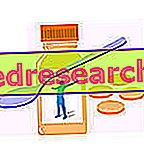Definition
Irritable bowel syndrome is a chronic bowel disorder widespread among the population: the disease, of a non-inflammatory nature, is responsible for alterations of intestinal motility and other disorders affecting the gastrointestinal tract.
Causes
Irritable bowel syndrome is not caused by a specific and precise etiological factor, nor by a well-defined organic pathology. There are therefore many possible causes, often synergistic: neuronal and immunological alterations, alterations of intestinal motility, enteric infections and incorrect lifestyle (unbalanced diet, sedentary lifestyle, obesity, stress).
Symptoms
The symptomatic picture of irritable bowel syndrome depends on the severity of the disorder: aerophagia, abdominal cramps, diarrhea, bowel disorders, hard stools, flatulence, meteorism, mucorrhea, perception of abdominal swelling, rectal tenesmus.
Natural Care
Diet and Nutrition
Information on Drugs for the Treatment of Irritable Colon Syndrome is not intended to replace the direct relationship between health professional and patient. Always consult your doctor and / or specialist before taking Medicines for the Treatment of Irritable Colon Syndrome.
drugs
Given the multiplicity of etiological factors, medications useful for irritable bowel syndrome are essentially aimed at treating symptoms; therefore, the doctor will prescribe the most suitable drug.
Anticholinergic-antispastic (antimuscarinic): they are used in the treatment of irritable bowel syndrome because they reduce gastric secretion and intestinal motility, typical symptoms of irritable bowel.
- Atropine sulfate (eg Atropine Lux): useful in case of smooth muscle spasm. Generally, the drug is administered by subcutaneous or intramuscular injection at a dose of 20 µg / kg (maximum dose 600 µg).
- Dicicloverina hydrochloride (eg Merankol, tablets): antimuscarinic activity less marked than atropine sulfate; the drug can also exert a direct action on smooth muscle. For children aged between 6 months and two years, administer 5-10 mg of active ingredient 3-4 times a day, 15 minutes before meals. For children aged 2 to 12 years, it is recommended to take 10 mg three times a day. The duration of the pharmacological treatment must be established by the doctor and depends essentially on the severity of the symptoms.
- Propantheline bromide (eg Lexil): it is recommended to administer 15 mg of active ingredient orally before meals, three times a day. Depending on the severity of the symptoms, the dosage can also be halved, as prescribed by the doctor.
- Scopolamine (eg Erion, Addofix): particularly indicated for giving symptomatic relief to gastrointestinal disorders (smooth muscle spasm). Or take 20 mg of active ingredient 4 times a day (halve the dose for children aged between 6 and 12 years). It is also possible to administer the drug intravenously, at the same dose.
- Mebeverina (eg Duspatal): it is recommended to take 135-150mg of active ingredient three times a day, before meals.
- Alverina citrate: we recommend oral administration of 60-120 mg 1-3 times a day. It is not recommended for children under 12 to be administered.
Tricyclic antidepressants : they exert an antidepressant and analgesic action. It has been observed that irritable bowel syndrome is also directly related to mood: psychogenic factors can cause constipation or intestinal tension. Therefore, the use of these drugs for short periods and at the dosage prescribed by the doctor is useful for improving mood and relieving irritable bowel symptoms.
- Clomipramine (eg. Anfrinil): the dosage and duration of treatment with the drug must be established by the doctor based on the severity of the patient's problem.
prokinetics
- psyllium (eg Fibrolax): this drug is formulated with the seeds of Ispaghula Husk: it is particularly useful for treating occasional episodes of constipation associated with irritable bowel syndrome. Take one sachet of product (3.5 g) 2 or 3 times a day after meals, for at least two or three consecutive days.
NB take the drug with a good amount of water, so as to increase the fecal mass. Wait at least an hour after taking the medicine before going to bed.
Serotoninergics : being antagonists of serotonin, they exert their action at the level of the enteric nervous system.
- Venlafaxine (eg Venlaflax, Efexor, Faxine): recommended to combat abdominal pain caused by anxiety and mood alteration. Take 75 mg orally once for no less than 4 days (recommended dosage for irritable bowel syndrome). In the case of depression associated with intestinal problems, take 37.5 mg orally of active ingredient twice daily (or 25 mg three times a day. Do not exceed 225 mg / day.)
- Alosetron (eg Lotronex: serotonergic modulators): it is recommended to take one tablet of 0.5 mg orally per day for women suffering from irritable bowel syndrome (in particular, diarrhea) when conventional therapy has not reported any significant positive effect. Increase the dose up to 2 mg if, after a month, the patient still complains of symptoms.
Defoamers
- dimethicone (eg. Maalox plus): it is possible to take this active together with antacids to prevent meteorism, another typical symptom of irritable bowel syndrome. Indicated, in particular, for the treatment of infantile colic in the context of irritable bowel syndrome.
Antibiotics (when the cause responsible for the irritable bowel is due to an infection)
- Rifaximin (eg Senecol, Normix, Rifacol, Rifaximin EG): it is an antibiotic used in the treatment of intestinal Gram + and gram infections with diarrheal symptoms. Take 1 tablet (200 mg) or 10 ml of oral suspension (200 mg) every six hours, for 7 days, unless further instructions from the doctor.
Unlike more serious pathologies affecting the intestine (eg Crohn's disease, ulcerative colitis), irritable bowel syndrome is not considered a serious disease, since it is not inflammatory in nature, does not alter the intestinal mucosa and is not a risk factor for colorectal cancer.



